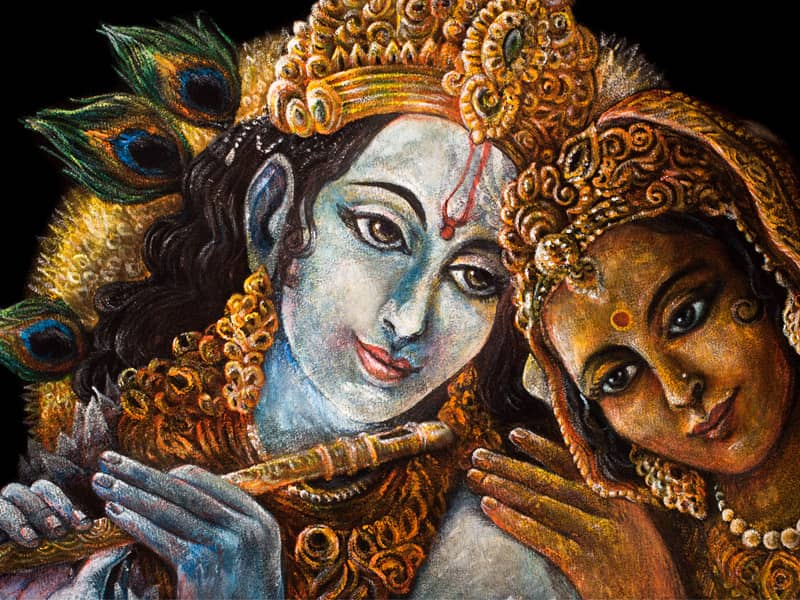Many Americans are familiar with the Himalayan nation of Nepal as the home of Mt. Everest and a popular destination for Western pilgrims seeking enlightenment amid the vibrant spiritual life and religious heritage of its capital city, Kathmandu. But in recent weeks, political unrest throughout Nepal--the world's only Hindu kingdom--has brought attention of a different kind to Nepalese society. Democracy protesters took to the streets to oppose the king's absolute power, and though the demonstrations were a times met with violence by the authorities, the pro-democracy movement scored a major victory last week, when the king re-instated the parliament that had been suspended four years earlier.
Tilak P. Pokharel, a Nepal-based journalist, took time out from covering the rapidly changing developments in that country to answer questions about the role of faith in the current unrest and in Nepalese society in general.
What does it mean that Nepal is a "Hindu kingdom"?
However, ardent supporters of Nepal as a Hindu kingdom argue that this status stems from the country's history, and they point out the uniqueness of Nepal as the only Hindu kingdom in the world. This argument is often used by the royalists to justify the Hindu king's power and his actions.
How or to what extent are Hindu principles supposed to be incorporated into the governance of the country?
Hinduism is the source of power in Nepal, and the monarchy, as the power center, plays the most important role in designing Nepal's state affairs. Since the king is considered, among many Nepalis, an incarnation of the Hindu Lord Vishnu, his actions may never be questioned by an individual or by any civilian authority. This remains the case despite the fact that the number of people who actually consider him a God has gone down remarkably in recent months, thanks to the king's own unpopular actions.
The latest spate of peaceful street protests seeks to officially bring down the king from his "almighty" status. Some argue that the idea of the king as a deity is not intrinsic to Hindu faith, since Hindu scriptures do not specify that all monarchs are gods, and obviously, the majority of the world's Hindus, who live in India and other parts of the world, do not have such a king. So, this line of thinking goes, the king's status a god can be eliminated--clearing the way for free and open political activity--without damaging the nation's Hindu heritage and identity.
How do we explain the violent repression of pro-democracy demonstrators by the government, if it is supposed to be based in Hindu values such as non-violence?
The violent repression of pro-democracy demonstrators by the government in recent weeks has been aimed at preventing anti-king sentiments among ordinary citizens to grow further. But it didn't work. Instead, it backfired and the protests spread quickly--with the voices on the streets calling for abolition of the monarchy itself, something that was unthinkable until the king usurped absolute power 14 months ago in a bloodless coup d'etat.
Religion didn't play an explicit role in these protests, nor did religious groups have any connection with these activities. But, until last week, when the king conceded his defeat, the Hindu monarch, as an absolute ruler, was the law in himself. Though the Hindu religion advocates for non-violence, royalists argue, the "repression" of the protests was necessary to stem the street violence that threatened the king's divine rule.
Are Hindu religious leaders involved in the pro-democracy movement?
No such leader is known to have participated directly or indirectly in these protests. However, the king's government arrested a Hindu astrologer for allegedly predicting a dark future for the king and the royal family. He was later released.
Barring a few Hindu extremists, who actively support the king, other Hindu religious leaders prefer to remain apolitical. But legends in almost all Hindu holy books talk about kings and their deeds, and these teachings implicitly include contemporary monarchy, giving the king the patina of religious approval. So it can be argued that all the Hindu religious leaders of Nepal, by transmitting these stories, are at least passive supporters of the king. If they become active pro-king activists, they risk being socially ostracized by the majority pro-democracy activists. That's already been the case with some outspoken pro-king religious leaders.
How do Nepal's Hindu citizens understand the pro-democracy movement from the perspective of their religion?
Even many Hindus are not happy to see their country being branded as the "only Hindu kingdom in the world," because most Nepalis want their country to be officially secular. Since the anti-monarchy movement is backed by Maoist rebels who shun religion and hate the "Hindu king," many Hindu and non-Hindu citizens feel that if the movement achieves its final goal of absolute democracy, it can ensure a higher degree of religious equality in throughout the society, giving greater voice and freedom to the country's minority religions and individuals' freedom of choice.

